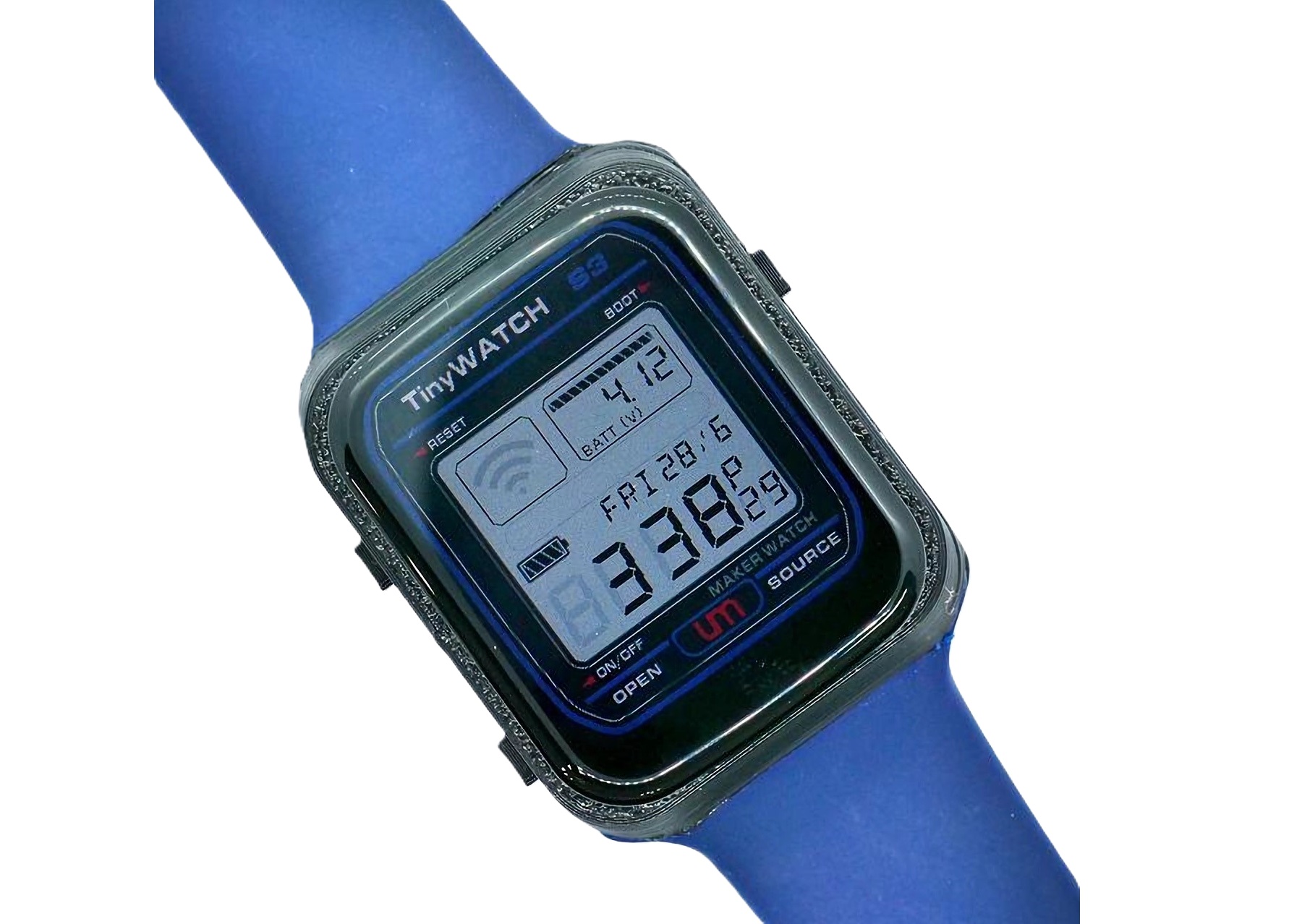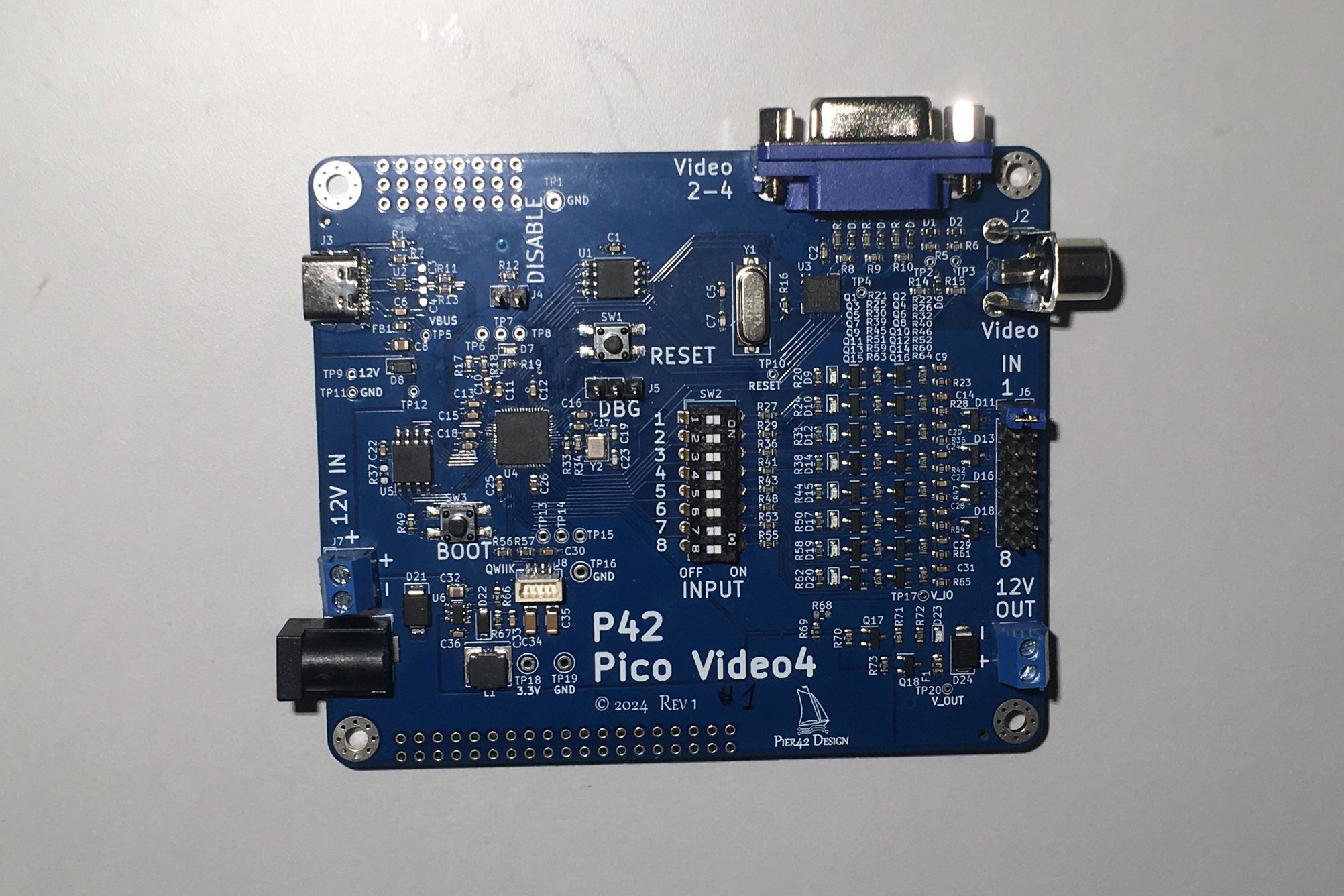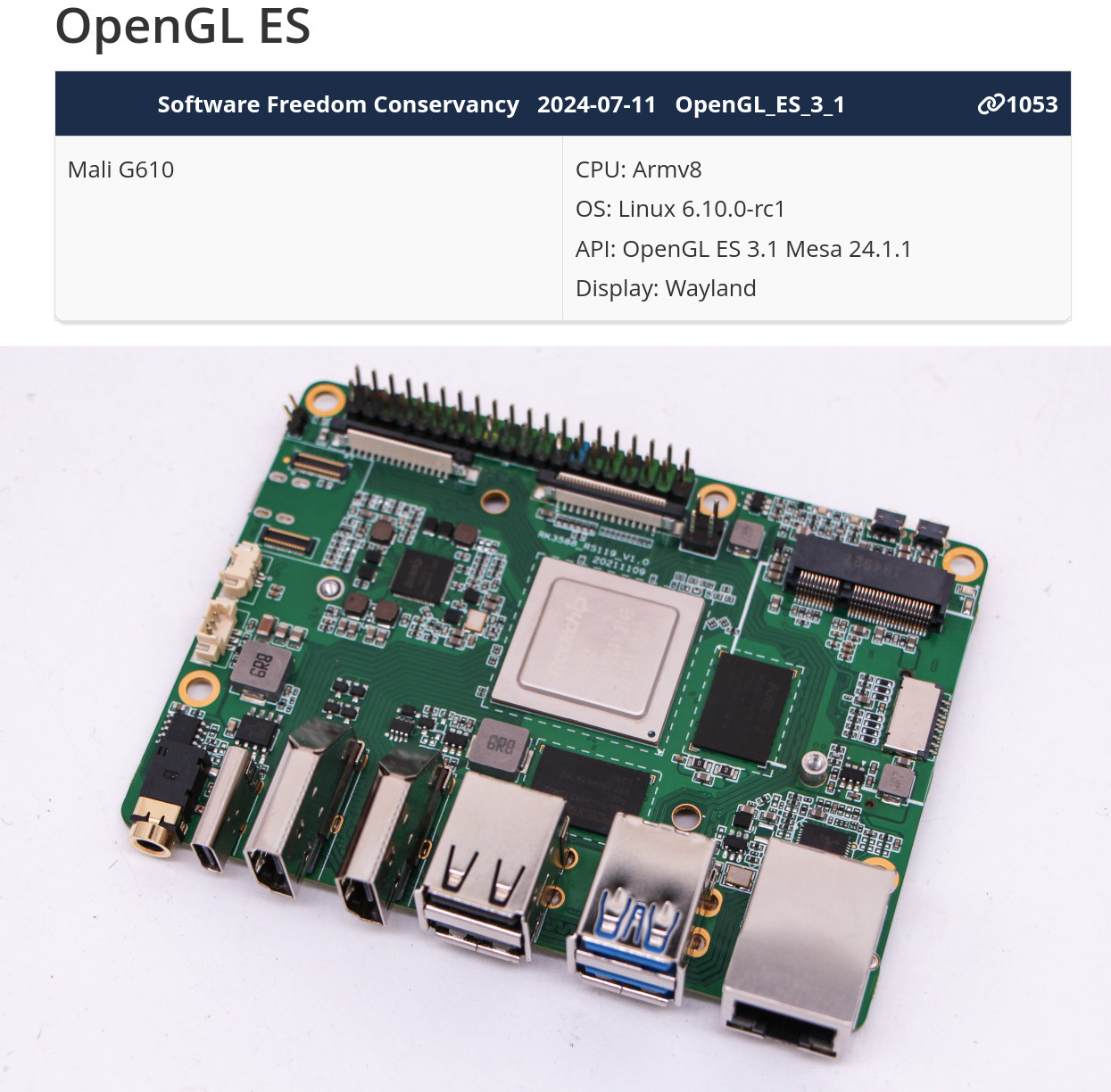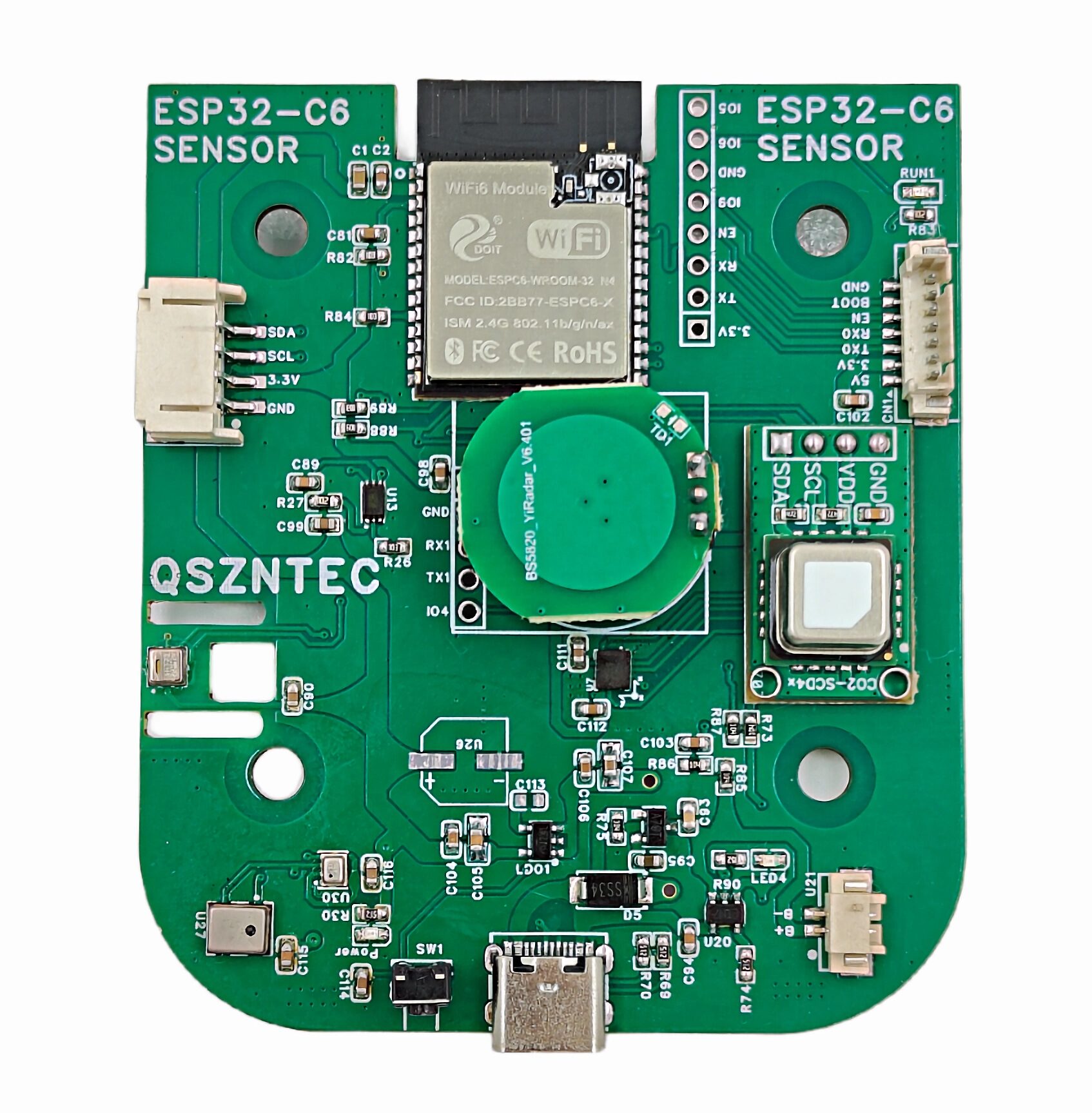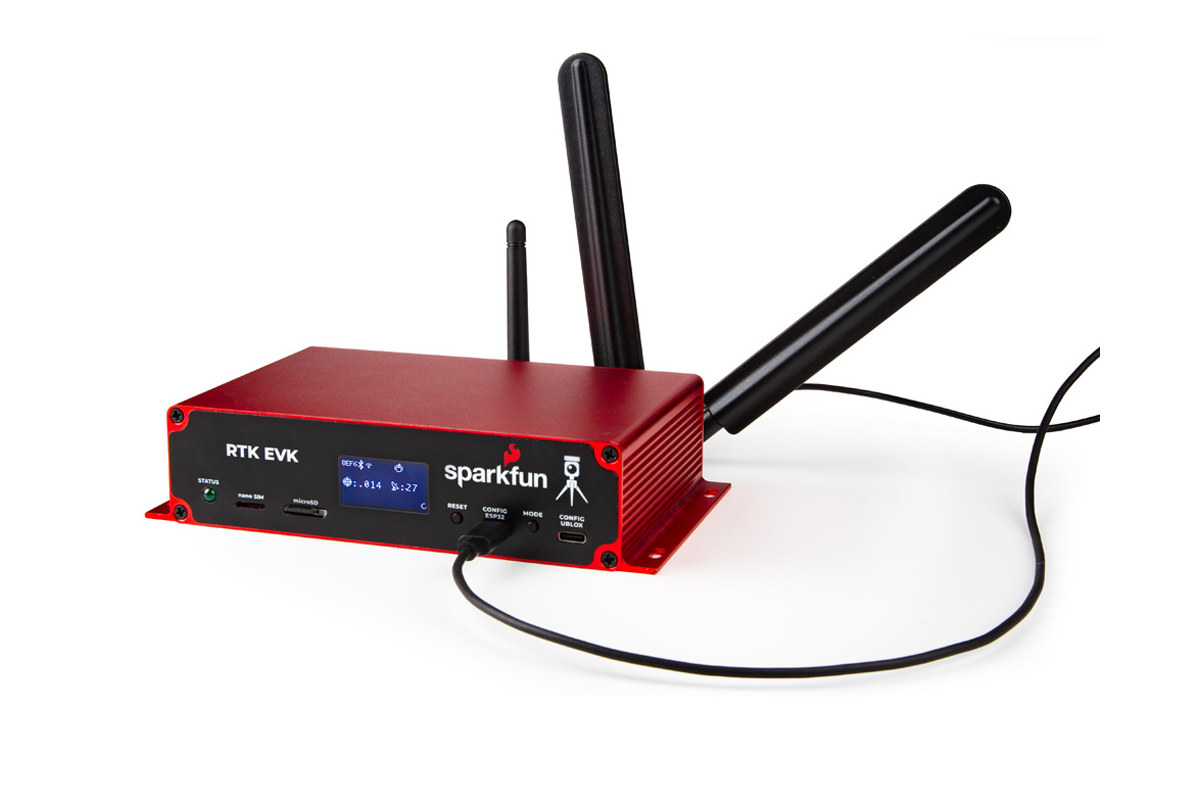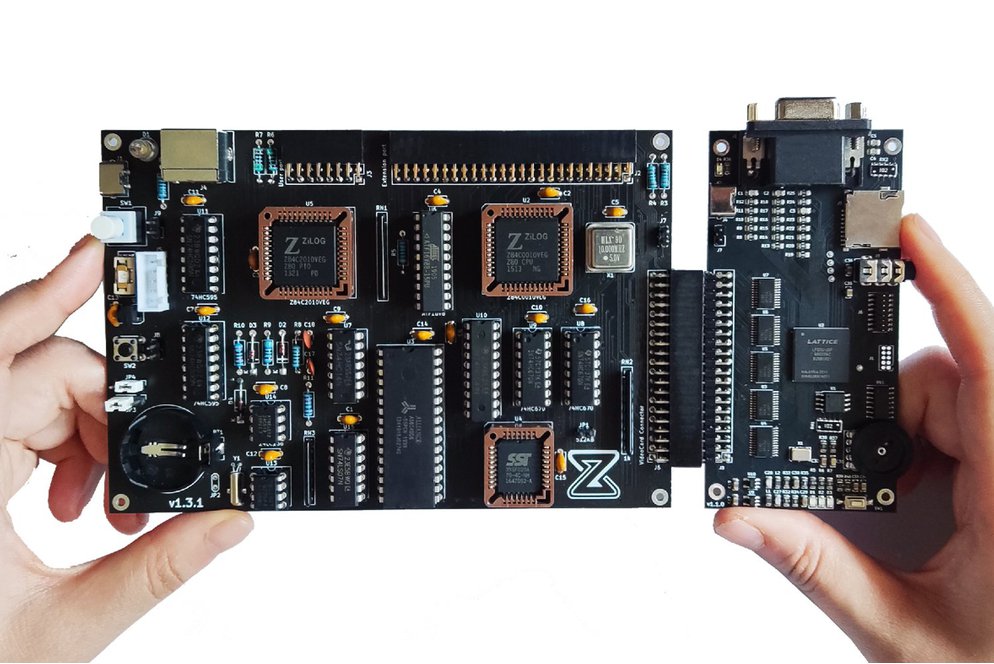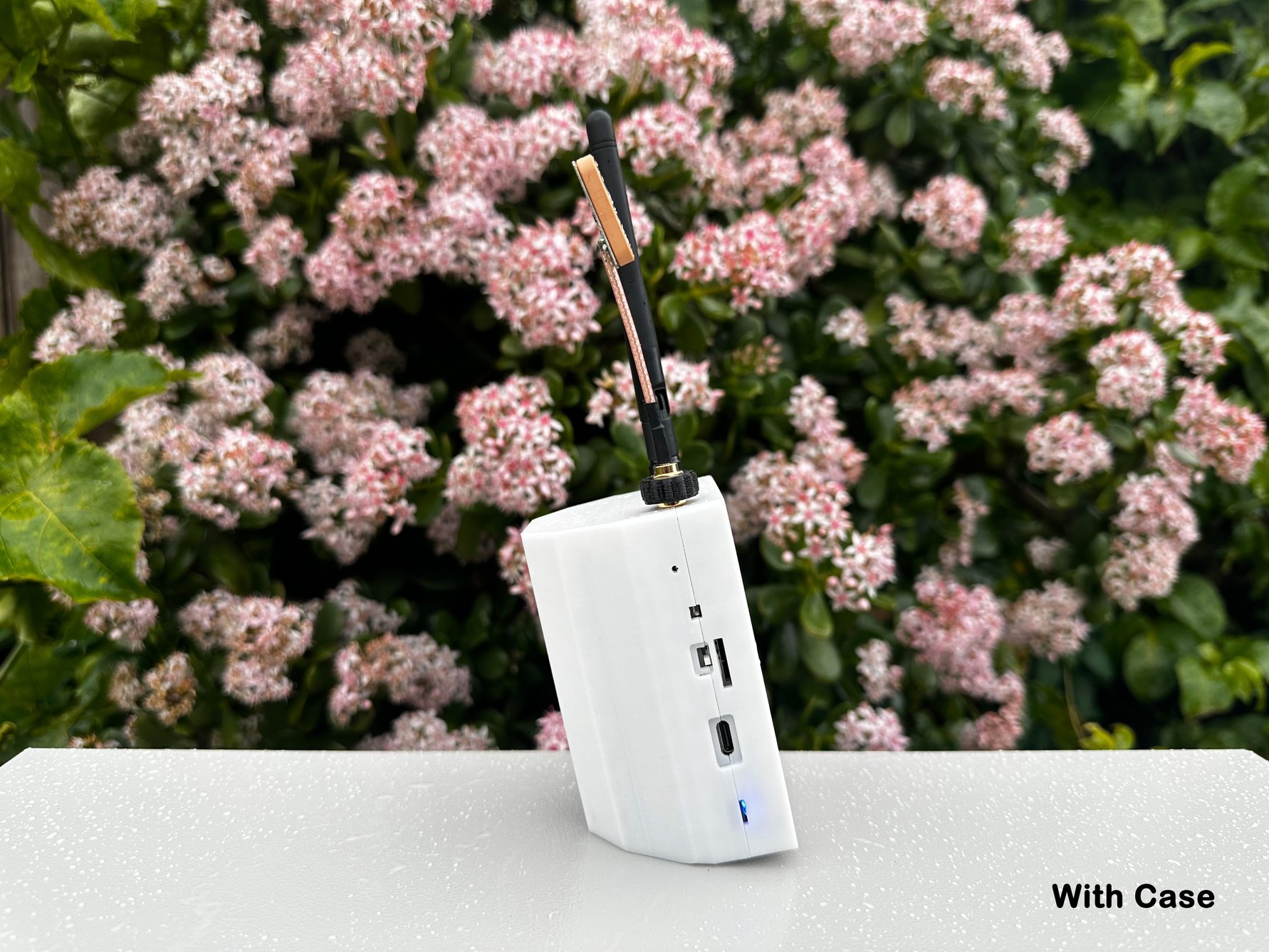The TinyWatch S3 is an ESP32-S3 development board in a smartwatch form factor from Seon Rozenblum, also known as Unexpected Maker. It is powered by the ESP32-S3 wireless microcontroller with 8MB quad SPI flash storage and 2MB of additional QSPI PSRAM. It features a 240 x 280 LCD with capacitive touch (via a CST816T module) and several onboard sensors including a 6-axis inertial measurement unit, a magnetometer, and a MEMS microphone. It has a USB-C port for power, programming, and charging a connected LiPo battery (250mAh or 500mAh). While the product’s firmware is still in active development, it is usable as a watch and even a daily driver. The TinyWatch S3 is described as a “wrist-wearable ESP32-S3 development board” but lacks pin headers and is not breadboard compatible. The hardware is open-source but the product is mostly useful for firmware development, testing, and other general projects. The firmware is being […]
Raspberry Pi RP2040-based Pico Video4 display board features 4 composite video outputs
The Pico Video4 Display is a Raspberry Pi RP2040-powered board that supports up to 4 analog composite video display interfaces with dedicated frame buffer memory accessible via SPI. The four video outputs are sent out through an RCA connector and a VGA DB15-HD connector that uses the red, green, and blue channels to create a composite video signal. The Pico Video4 Display is based on the Raspberry Pi RP2040 microcontroller chip and the VLSI VS23S040 four-megabit static RAM device with a video display controller that can output NTSC, PAL, and VGA video from the memory array. It provides the composite video outputs with a dedicated frame buffer and other hardware. This ensures that the RP2040’s limited processing power and memory are not hogged up in generating the video signal, leaving room for other major tasks. It has 8 inputs that are voltage-compatible to the input voltage, from 5V to 12 […]
Panthor open-source driver achieves OpenGL ES 3.1 conformance with Arm Mali-G610 GPU (RK3588 SoC)
Collabora has just announced that the Panthor open-source GPU kernel driver for third-generation Arm Valhall GPUs (Arm Mali-G310, Mali-G510, Mali-G610, and Mali-G710) has now achieved OpenGL ES 3.1 conformance with the Arm Mali-G610 GPU found in the Rockchip RK3588 SoC. Just a few days ago, Linux 6.10 was released with “support for Mali CSF-based GPUs found on recent Arm SoCs from Rockchip or Mediatek”, as expected from the earlier article entitled “Panthor open-source driver for Arm Mali-G310, Mali-G510, Mali-G610, and Mali-G710 GPUs to be part of Linux 6.10” published last March. But this did not say anything about the level of support for the Valhall GPU since it’s common for new hardware to be added with minimal support, and OpenGL ES 3.1 compliance means it’s ready for business… Collabora’s announcement explains this was tested on a Radxa Rock 5B single board computer: The conformance tests ran on a Rock5b board […]
Qsen-07 multi-sensor wireless board can detect CO2, VOC, temperature, humidity, ambient light, and attitude
The Qsen-07 multi-sensor board is an ESP32 wireless development board that combines several useful sensors into one device, making it easier to control, monitor, and enhance your home environment. It is a recent product from Maker Go, a China-based hardware company, which claims the board is “fully integrated with ESPHome and Home Assistant“. But as noted in a reader’s comment below, ESPHome on ESP32-C6 is still a work in progress, and the YAML configuration file for the board has yet to be provided by the company. The Qsen-07 multi-sensor board is “designed for health-conscious and tech-savvy homeowners” and can monitor air quality and other environmental variables to ensure a safe and smart living space. It features up to seven sensors, including two air quality sensors, a temperature and humidity sensor, an ambient light sensor, a barometric pressure sensor, an attitude gyro sensor, and an optional radar sensor. The Aosong AGS10 […]
SparkFun RTK EVK offers GNSS with centimeter accuracy, WiFi, Bluetooth, 4G LTE Cat 1, and Ethernet connectivity
SparkFun RTK EVK is a fully-enclosed GNSS platform designed for fixed or mobile high-precision positioning and navigation applications with centimeter accuracy thanks to RTK (real-time kinematic) technology implemented with modules from u-blox. About two months ago, Sparkfun introduced the RTK Torch waterproof GNSS surveyor with Unicore UM980 GNSS module with RTK support, ESP32 for WiFi/Bluetooth, and an STM32WLE5C LoRa SoC. The SparkFun RTK EVK (evaluation kit) may drop LoRa connectivity, but it’s a more versatile platform with WiFi, Bluetooth, Ethernet, and LTE Cat 1 cellular connectivity, besides support for L1 + L2 RTK GNSS with L-Band correction. Sparkfun RTK EVK specifications: GNSS Receiver – u-blox ZED-F9P Concurrent reception of GPS, GLONASS, Galileo, and BeiDou Receives both L1C/A and L2C bands 184-channel u-blox F9 engine Time to First Fix: 25s (cold), 2s (hot) Max Navigation Rate: 20Hz / 25Hz depending on mode Horizontal Position Accuracy: 2.5m without RTK; 0.010m with RTK […]
$180 Zeal 8-bit Computer Complete Edition is an all-in-one retrocomputing platform based on the Zilog Z80 microprocessor
The Zeal 8-bit Computer Complete Edition is a system that aims to bring retrocomputing to the modern age with the aid of a motherboard built around the Zilog Z80 microprocessor and several peripherals. The Zeal 8-bit Computer project began in early 2021 and has been released in bits and pieces since then. Now, a finalized version tagged the “Complete Edition” is ready for release to the public. It promises a modern retrocomputing experience with the simplicity of retro computers and support for relatively recent features such as VGA graphics, TF cards, and NOR flash. The Zeal 8-bit Computer Complete Edition includes the following components: the Zeal 8-bit Computer motherboard, the Zeal 8-bit Video Board, and a 3D-printed enclosure with a touch sensor for turning the board on/off. The Zeal 8-bit Video Board is based on a Lattice ECP5 FPGA and can output up to 65,536 colors via VGA. It also […]
The ESP32 Marauder Pocket Unit v2 is a wireless penetration device with an onboard GPS module and touchscreen
The ESP32 Marauder Pocket Unit with GPS v2 is a portable Wi-Fi and Bluetooth penetration tool powered by an ESP32 module and used to test and analyze wireless networks. It features a 2.8-inch touchscreen, two 18650 batteries, an SD card slot, an LED battery indicator, and two external antennas for 2.4GHz Wi-Fi and GPS. ESP32 Marauder Pocket Unit v2 specifications: Microcontroller – ESP32 Wi-Fi & Bluetooth SoC Storage – MicroSD card slot for file sharing, backup, and firmware updates (8GB SanDisk memory card included) Display – 2.8-inch capacitive touchscreen USB – USB-C port for charging GNSS – Embedded GPS module Antenna – External dual antenna SMA connectors for WIFI and GPS Misc 1x battery status indicator Reset and Power buttons Power – 2x 18650 batteries Dimensions – 92 x 71 x 46mm The ESP32 Marauder device is based on JustCallMeKoko’s ESP32Marauder Project, a suite of Wi-Fi/Bluetooth offensive and defensive tools […]
Renesas SLG7EVBFORGE FPGA dev board is built around ForgeFPGA SLG47910V low-density FPGA
Renesas SLG7EVBFORGE FPGA dev board, built around SLG47910V is Renesas’ first low-density FPGA in the ForgeFPGA family. The FPGA includes 1120 LUTs, 1120 flip-flops, 5kb of distributed memory, 32kb of block RAM, and a 50 MHz on-chip oscillator with a phase-locked loop (PLL). With robust features, low power consumption, and affordable pricing this FPGA can be used in applications in sensor data aggregation, consumer electronics, and portable computing devices. The SLG47910V FPGA gets connected to a ZIF socket to the development board, this design choice puts out a clear sign that upcoming Forge family FPGAs will support this dev board. Additionally, it features Pmod connectors and configurable power sources. The dev board can be programmed via OTP Non-Volatile Memory or SPI interface and additional features get managed through Renesas’ Go Configure Software Hub. Previously we have written about similar low-power low-cost FPGA boards like the Sipeed Tang Mega 138K, the […]


